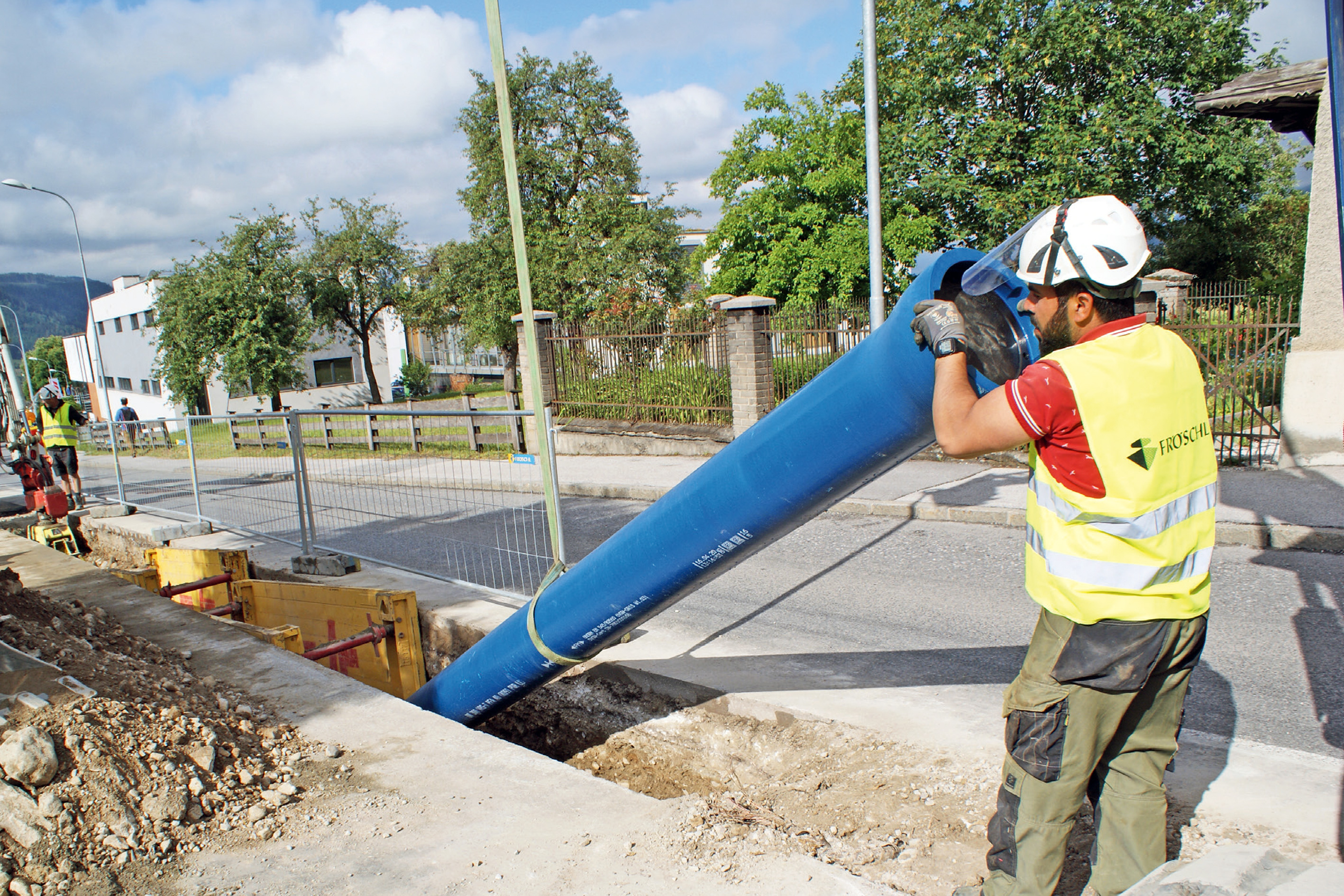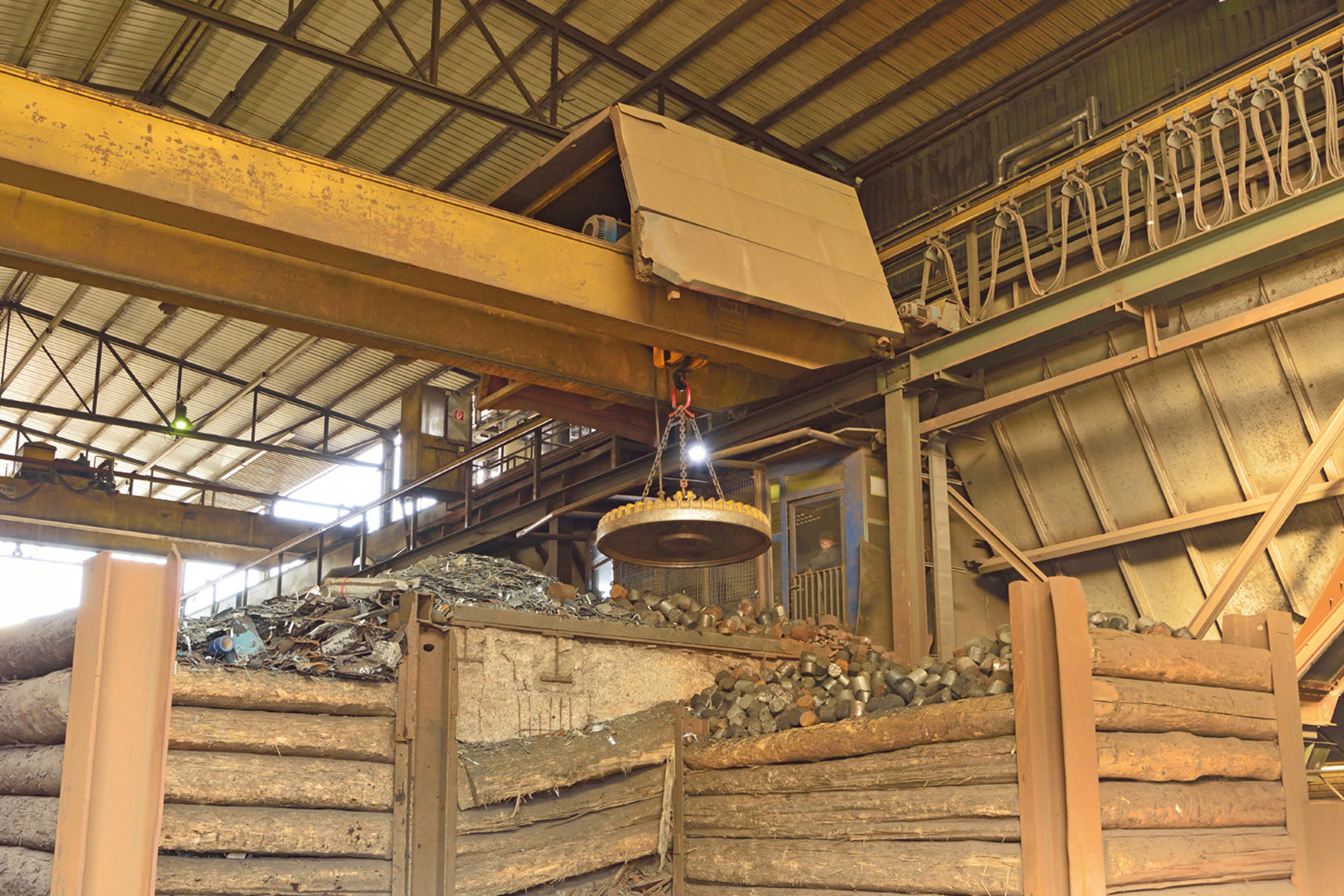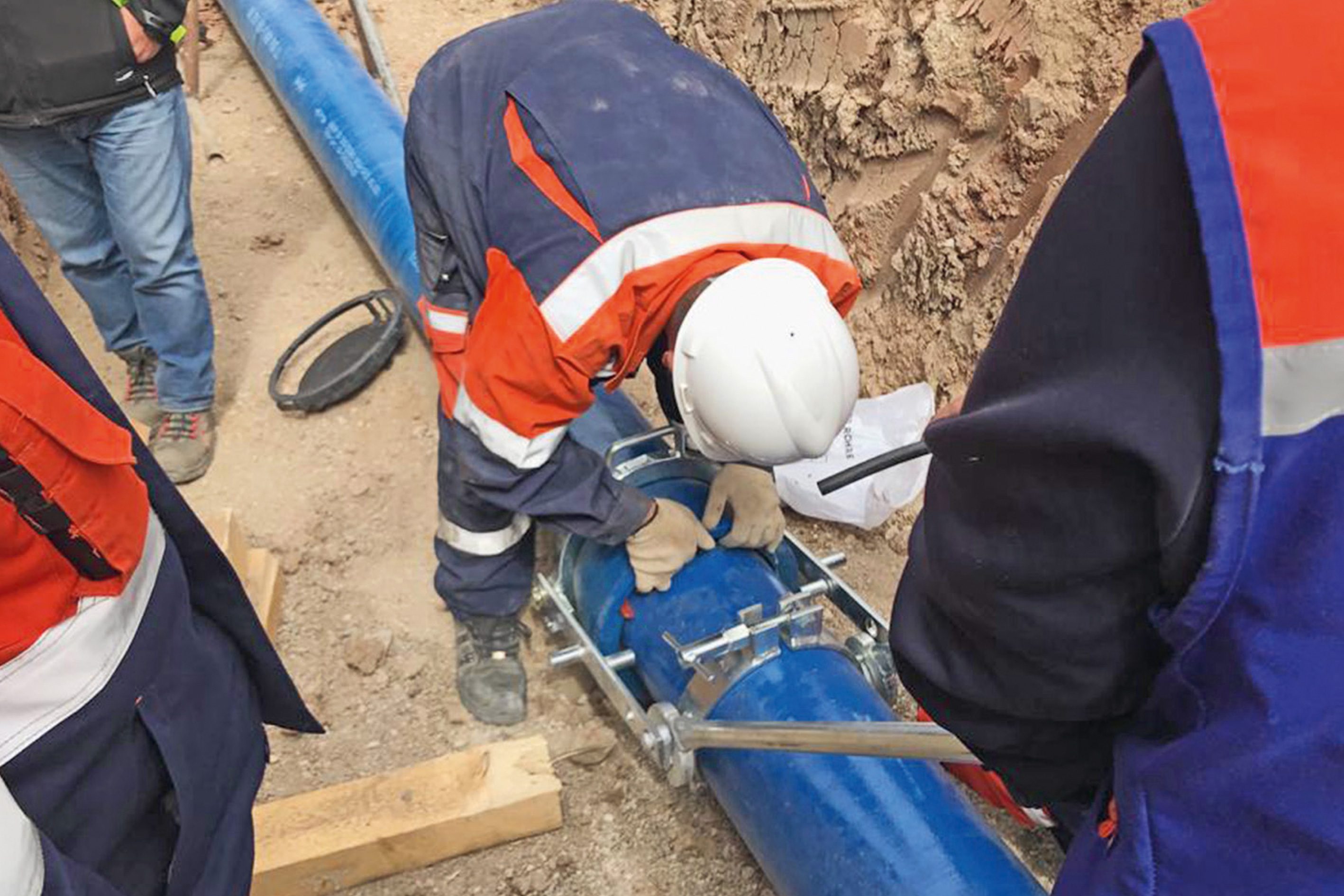
Many good reasons that speak for the use of ductile iron pipe in drinking water and wastewater systems
For us, it is normal that clean drinking water comes out of the tap - but it is not a matter of course. A lot of care goes into this and, above all, a good supply network that protects drinking water as the No. 1 foodstuff. A particularly high-quality material for this task is ductile cast iron. The "a solid reason" initiative - launched by EADIPS/FGR (European Ductile Iron Pipe Systems / Fachgemeinschaft Guss-Rohrsysteme) - has made it its task to focus on the many positive aspects that speak for a pipe network made of ductile iron.
Without the important supply and disposal networks of drinking water pipes and sewers, our lives would not look as they do now and would not be as comfortable as they are. For this very reason, it is important that durable raw materials and safe materials are used in conjunction with sustainable concepts when constructing water supply and wastewater disposal systems. Ground movements caused by traffic, construction and minor earthquakes, contamination of soil and groundwater as well as temperature fluctuations - supply networks have to withstand all these stresses while protecting our drinking water as the No. 1 foodstuff. The best "packaging" is therefore just good enough. This is the subject of the "a solid reason" initiative, which was started by the European Association for Ductile Iron Pipe Systems (EADIPS/ FGR) and is committed to the expansion of supply and disposal networks with high-quality ductile iron pipe systems. The name is no coincidence: the initiative, which was developed and is supported by all member companies, sums up the many good reasons for using ductile iron pipe systems. "We want to share good practice examples for drinking water networks and other systems in civil engineering. We want to show that top quality, production in Europe and environmental protection are worthwhile in the long run for the waterworks and the public, and we want to award people who are particularly ambitious and credibly committed to this," Christoph Aigner, Head of the Pipe Division at "a solid reason" member company Tiroler Rohre GmbH (TRM) and Member of the Board of the EADIPS/FGR Association, explains the intention behind the campaign.
ROBUSTNESS CONVINCES MUNICIPALITIES
The main reason why municipalities and operators of water networks choose ductile iron pipes for water transport is still the high quality and robustness. Service networks are supposed to ensure stable supply and disposal for 100 years and more. During this time, networks are subject to changes: The loads on the pipe systems in the ground can change due to construction work or increased traffic. Soil erosion due to heavy rainfall can expose pipeline systems. Earth movements due to mining, earthquakes or landslides can massively change the loads. Pipe systems with the restrained locking system will work stably even in the face of these changes, and the material properties also remain intact.
RECYCLABLE AND PLASTIC-FREE
According to the Tyrolean ductile iron pipe specialist TRM, environmental issues and the growing desire to continue manufacturing pipe systems in Europe have also led to an increased demand for European ductile iron pipe systems in recent years. Environmental protection and sustainability have gained enormous importance in recent years and have become an integral part of the public discussion. Important focal points, which are also on the agenda of the Austrian government, are the circular economy, the replacement of natural raw materials, the CO2 footprint and the avoidance of plastics. These topics have meanwhile also arrived in civil engineering and constitute an important advantage of European ductile iron pipe systems over other materials. "In our industry, many products are buried and are therefore not (any longer) visible. They are in contact with the soil, groundwater and, in the case of pipes, also with drinking water, our most important foodstuff," explains Christoph Aigner. The materials used should therefore be of the highest quality and particularly gentle on the environment and health. "It was therefore obvious for us to launch the initiative 'Guter Grund - für Boden- und Wasserschutz' (a solid reason - for Soil and Water Protection), to make the buried systems visible and to give a voice to all those who see it the same way as we do."
MORE THAN 100 YEARS IN USE
The decision-makers at municipalities and waterworks are particularly impressed by the recyclability of ductile iron pipes. Pipe systems made of ductile iron can serve for more than 100 years without any problems and have the advantage that they can be recycled as often as desired, thus helping to protect the environment. "We have many customers who dig up pipes that are decades old. These are processed by our recycling partner and we can produce a new product from them, that is of higher quality than the original material and ideally has a short way from us to the construction site," reports Christoph Aigner. With plastic, on the other hand, the best case scenario is downcycling, which means that recycled plastic is not approved for use in drinking water or gas pipes. Pipes, fittings and valves made of ductile iron pipe are not made of limited fossil raw materials, but of steel scrap and cast iron scrap, which TRM obtains mainly from regional material cycles. CO2 emissions are continuously reduced during production and "waste products" are returned to the product cycle. The ductile iron pipe systems from TRM are not only sustainable in the production of the material, but also in terms of transport, because they are produced in a European plant. This creates jobs in the region and at the same time avoids unnecessary global transport routes.
POSITIVE IMPACT ON OVERHEATED INNER CITIES
Ductile iron pipes are not only sustainable in their production process and thus protect the environment, they can also have a direct positive influence on the urban climate. The concept of the sponge city is seen as a promising solution to chronically overheated inner cities. Excessively sealed surfaces in urban areas create local heat islands and cause flooding, as the water volumes can no longer seep away during the increasingly frequent heavy rainfall events. In sponge cities, space is left in the ground for rainwater and trees. But this requires space in the underground. In pipe trenches with robust and root-resistant pipe systems, this space can be made available to a sufficient extent. Ductile iron pipes with their flexible joints and cement mortar coating are robust and root-resistant and thus is an important key to cooler cities.
RELIABLE PARTNER
In addition to the many ecological aspects that speak in favour of cast iron pipes and are brought into focus by the "a solid reason" initiative, customer service is the top priority for the pipe manufacturer TRM: "We want to be a partner for utilities in civil engineering. That means not only standing up for the highest quality, regionality and environmental protection, but also being there for the waterworks and the municipality as a reliable partner, even when things get difficult," is how Christoph Aigner sums up TRM's corporate philosophy.
Author: Patricia Pfister, Editor ZEK-Kommunal; with kind permission of Mag. Roland Gruber e.U. zek Verlag,
www.zek.at


